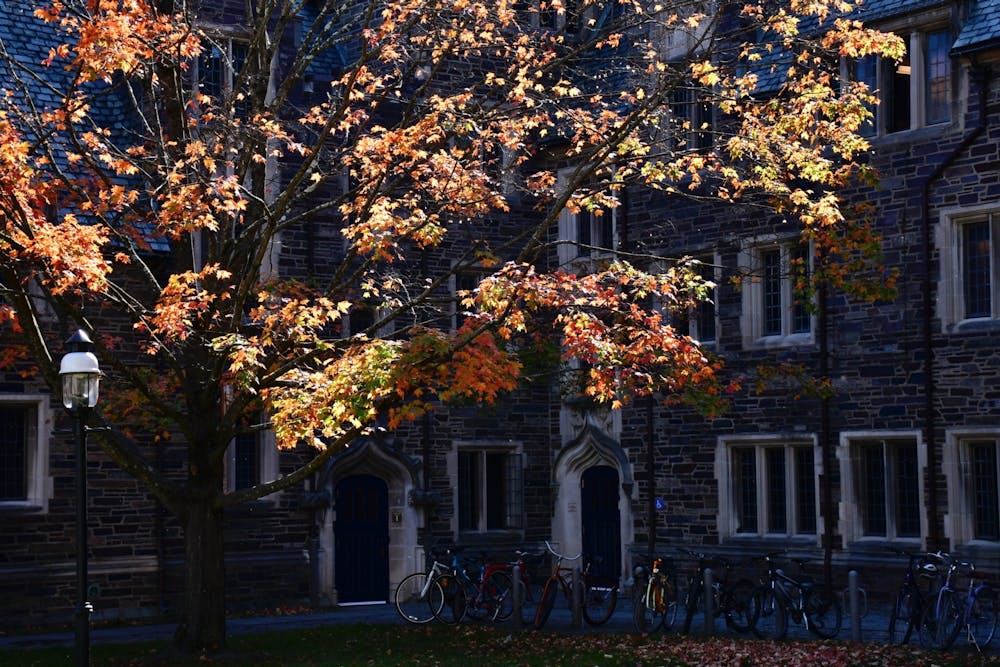When I initially learned that seniors were not going back in the fall, I felt upset. But, as I began to process the decisions that came out July 6 and how they would affect us all differently, I realized I must be mindful of our classmates in less fortunate positions. If Princeton is truly our home, we must share it with those who have nowhere else to go.
In a Q&A session hosted on Zoom by Undergraduate Student Government (USG) President Chitra Parikh ’21, Dean of the College Jill Dolan mentioned the rationale for splitting the class years up was primarily academic: Princeton wanted the juniors to come back in the fall because that is when their junior paper seminars and preparation for independent research began. Sophomores were to come back in the spring due to major declarations.
If the University claims that the decision was mainly academic, then why not consider accepting seniors for the whole year? A senior thesis is a year-long feat, double the size and exponentially greater in weight than a JP or declaring a major (which can be changed junior fall and is a virtual “click” anyway).
In reality, though, the University should not be prioritizing academics at this point. It’s quite impossible to have a “high-quality” education virtually, anyway, regardless of whether or not a certain class year is on campus. This is especially true without peers and in-person meetings. Even President Christopher Eisgruber ’83 acknowledged at the end of his email that “this year will be far from normal.”
Instead, the University should consider changing its decision regarding who returns to campus to prioritize these students, because without a long-term place to live, it doesn’t matter if the education we receive is “high quality.” No one can have any education if their home or safety is being threatened. This applies especially to students in unstable living environments (including but not limited to homelessness, parental abuse and violence, low-income and food insecurity, risk of deportation, and family members with mental health issues). Constantly living in fear of how you are going to survive the next day or worried about where to stay in a week makes it impossible to focus on any type of learning.
Along those lines, it is also imperative that the University be more upfront in about its system surrounding gap years. The faculty has said that after aggregating the Class of 2024 deferral forms (due July 15) and gap year requests from sophomores, juniors, and seniors (due Aug. 1), it will model the leave-taking trends and have a list of which students can take a gap year and come back within one year released by early-to-mid September (most likely based on a lottery system). Notice how this date is after the start of the school year.
This timeline makes it very difficult to decide whether or not to take a gap year. It also greatly affects international students and students in precarious financial positions, who have visas and contracts that expire very soon. Those who might find it most beneficial to take a year off might be notified in mid-September that they cannot do so, and at that point it will be too late for them to find alternative gap year or living options. The University’s slow timeline is hurting, and not protecting, its most vulnerable students.
Even as the administration drags its feet in giving us answers or solving already apparent problems, we as students should still hold true to the principles of our motto: “In the Nation’s Service and the Service of Humanity.”
Before we make any decision, we as Princetonians need to reflect hard and decide carefully. We need to be aware of how our actions affect others — including international students, FLI students, and future classes — as well as ourselves.
My dear seniors, as a senior myself, I’m sorry this hurts. We won't have the last year we expected or deserved. But we will survive. It sucks and it will be hard. We can be upset. We can cry. We definitely should cry. But we should also support our most vulnerable students. We should get through this together. Some things can’t be avoided, even if we try hard to run away from them. But many things get better when they are shared.
And, if at the end, the University does not change its policies and we are not able to take gap years or whatnot, we must learn to be wise and accept the things we cannot change, and be courageous to change the things we can. Even if that means changing our plans, our dreams, and our mindset.
Because nothing, not even COVID-19, will change the fact that we will always have a home at Princeton.

Lillian Chen is a senior in the Economics Department. She can be reached at lillianc@princeton.edu.








